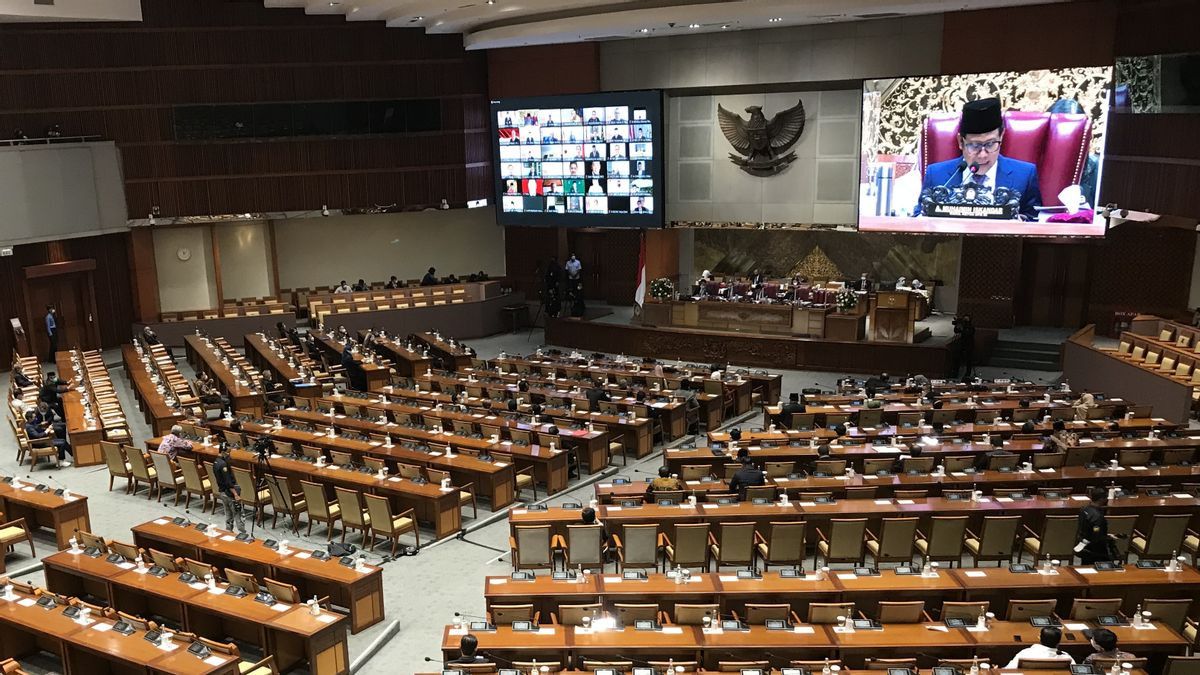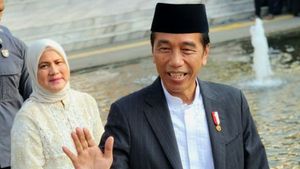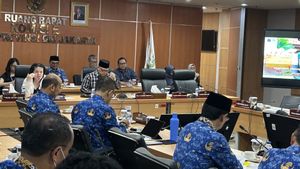JAKARTA - The House of Representatives of the Republic of Indonesia continues to respond to public expectations for the prevention of violence against women. One of the efforts made is through the Bill on the Crime of Sexual Violence (TPKS), which is currently still rolling in the Working Committee of the Legislative Body (Baleg) of the Indonesian House of Representatives.
“In this bill, victims really become our concern. Victims are not only protected but also receive treatment, protection, and recovery related to cases of violence experienced by them," said the Chair of the TPKS Bill Working Committee, Willy Aditya, Tuesday, November 23.
The TPKS Bill focuses on victims considering that no matter how hard the perpetrator is punished, the victim still gets a complex loss effect. Willy emphasized that the TPKS Bill is the only bill whose perspective is based on victims.
“They are innocent but afraid to report. They are also ashamed, traumatized, disoriented, even among them to the point of mental illness. For students, it becomes difficult for them to study, they have to change schools or campuses because they become gossip, so they choose to drop out," he said.
Willy himself said that sexual violence is still like a mirage because it is very visible in the distance but seems to disappear when approached. He emphasized that the data shows how high the number of victims of sexual violence is, but when approached with the formulation of regulations, it just evaporates.
“The debate about it has turned into a matter of adultery or even the legalization of free sex. Meanwhile, the terms about violence and the fate of the victims themselves are relative. Yet sexuality is a complex term. It cannot be seen simply or in black and white,” said Willy.
“There is an aspect of feeling that is dominant in it which logic is often unable to fight against. However, in terms of violence, it is possible to sort out and identify its forms and practices so that it can be formulated which ones are considered victims and which are not. In the light of this term, the bill on sexual violence was formulated," he continued.
SEE ALSO:
Although many parties have voiced that the TPKS Bill is quickly passed, Willy said the discussion in the DPR was not as smooth as expected. One of the highlights is the phenomenon when the victim is actually the one to blame.
“Victims who complain are often blamed, as if lust is legitimate to harass them. On the other hand, political understanding and interests have always been a steep path for efforts to defend victims and prevent acts of violence from occurring,” said Willy.
In Baleg itself, this is what continues to color the debate over the formulation of the TPKS Bill. In fact, to get a common ground and understanding so that the spectrum of thoughts and views in the TPKS Bill focuses on the victim, Willy said, the Panja has summoned more than a hundred stakeholders and held dozens of meetings.
“However, this focus is apparently not enough. Those who don't agree keep demanding more or wishing on irrelevant things," he said.
There are several crucial issues that arise in the dynamics of the discussion of the TPKS Bill in the DPR. These include the title of the bill, the types of violence, and the phrase consent to have sexual intercourse or sexual consent.
Willy said that the most sensitive thing from those crucial issues is the clause 'consent' from the victim or commonly called consent. This clause has always been the subject of fierce and complicated debate every time this bill is discussed.
“The logic that comes up immediately jumps to: it means legalizing adultery or free sex. In fact, of course not so logical. Oftentimes, such overturning of logic becomes a black narrative for efforts to protect victims in cases of sexual violence,” said Willy.
“When a wife refuses to have sex with her husband for some reason, and therefore sexual intercourse is not allowed, then when the wife agrees it will be called zina? Of course not, because they are a couple. That's what consent means, and right at that point the clause of violence or not is there," he added.
Meanwhile, the issue of adultery already has its own clause and is regulated in the Criminal Code. The TPKS Bill does not actually include a clause on 'approval' so it shouldn't need to be debated.
“The TPKS Bill does not include the phrase sexual consent at all. We compiled this with great care and a sociocultural basis. So the word sexual consent is not in this bill,” said Willy.
Willy actually hopes that the TPKS Bill can be plenary as a decision by the Legislative Council of the Republic of Indonesia according to the schedule on November 25 to coincide with the commemoration of International Anti-Violence Against Women. This is because many victims of sexual violence come from women.
However, the absence of a meeting point for the factions in the DPR is still an obstacle. It is said that the factions who pioneered the TPKS Bill will continue to strive to build understanding and empathy for victims in all stakeholders.
“Patience has to be the stance. Optimism must be encouraged. At least on this International Day for the Elimination of Violence against Women, we still have hope for the birth of a law that is able to protect and restore victims," said Willy.
He added that the DPR RI will continue to respond to public anxiety regarding this issue. Willy asked the public to believe that the DPR will always side with victims of sexual violence.
“We are loyal to the issues that concern us. The public can see our totality, which not only protects but also continues to struggle to realize the birth of the law for the protection of victims of TPKS. From the start, we knew this would not be easy. But what is not easy doesn't mean it can't be done," concluded the legislator from the XI East Java electoral district.
The English, Chinese, Japanese, Arabic, and French versions are automatically generated by the AI. So there may still be inaccuracies in translating, please always see Indonesian as our main language. (system supported by DigitalSiber.id)

















